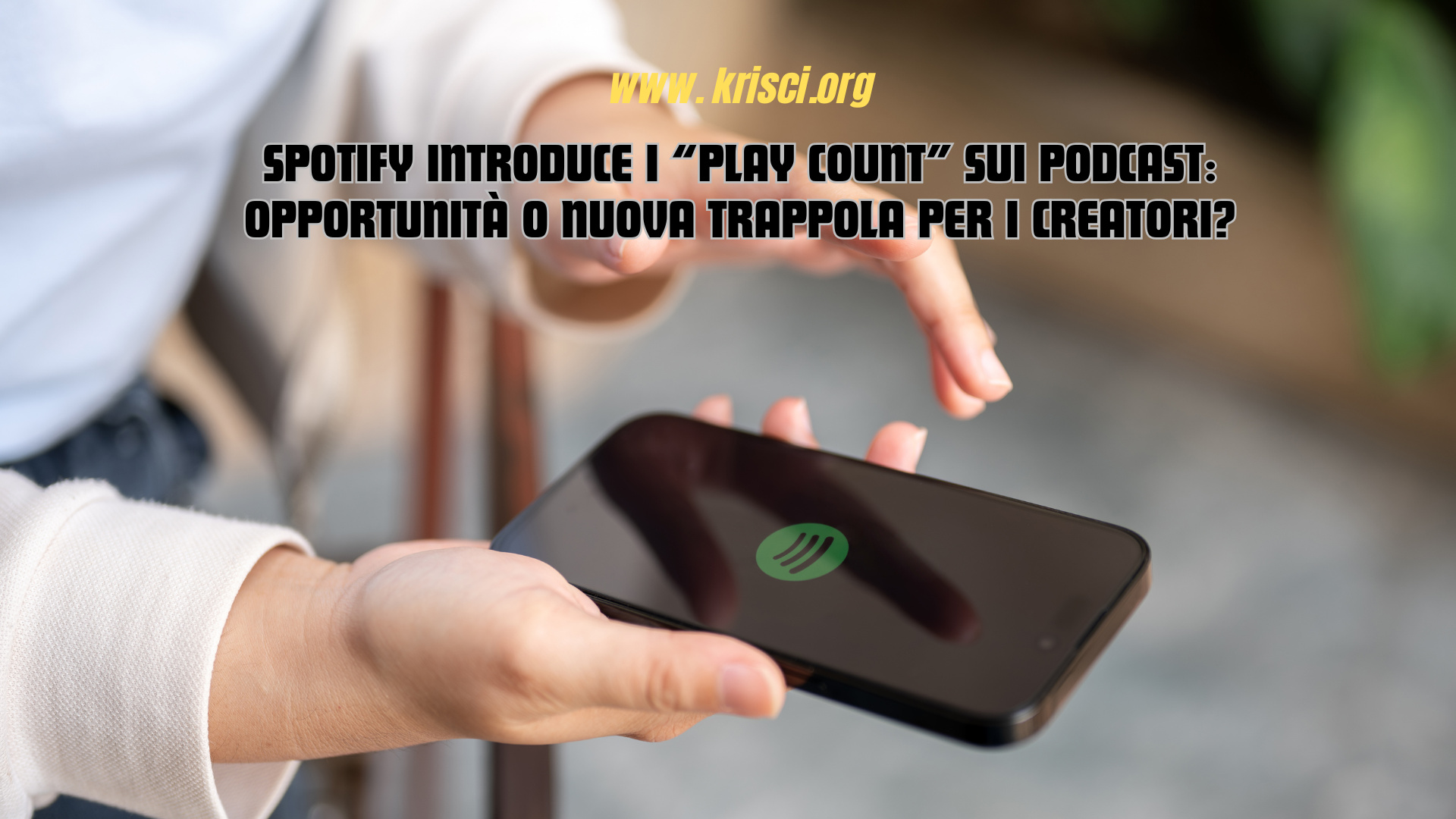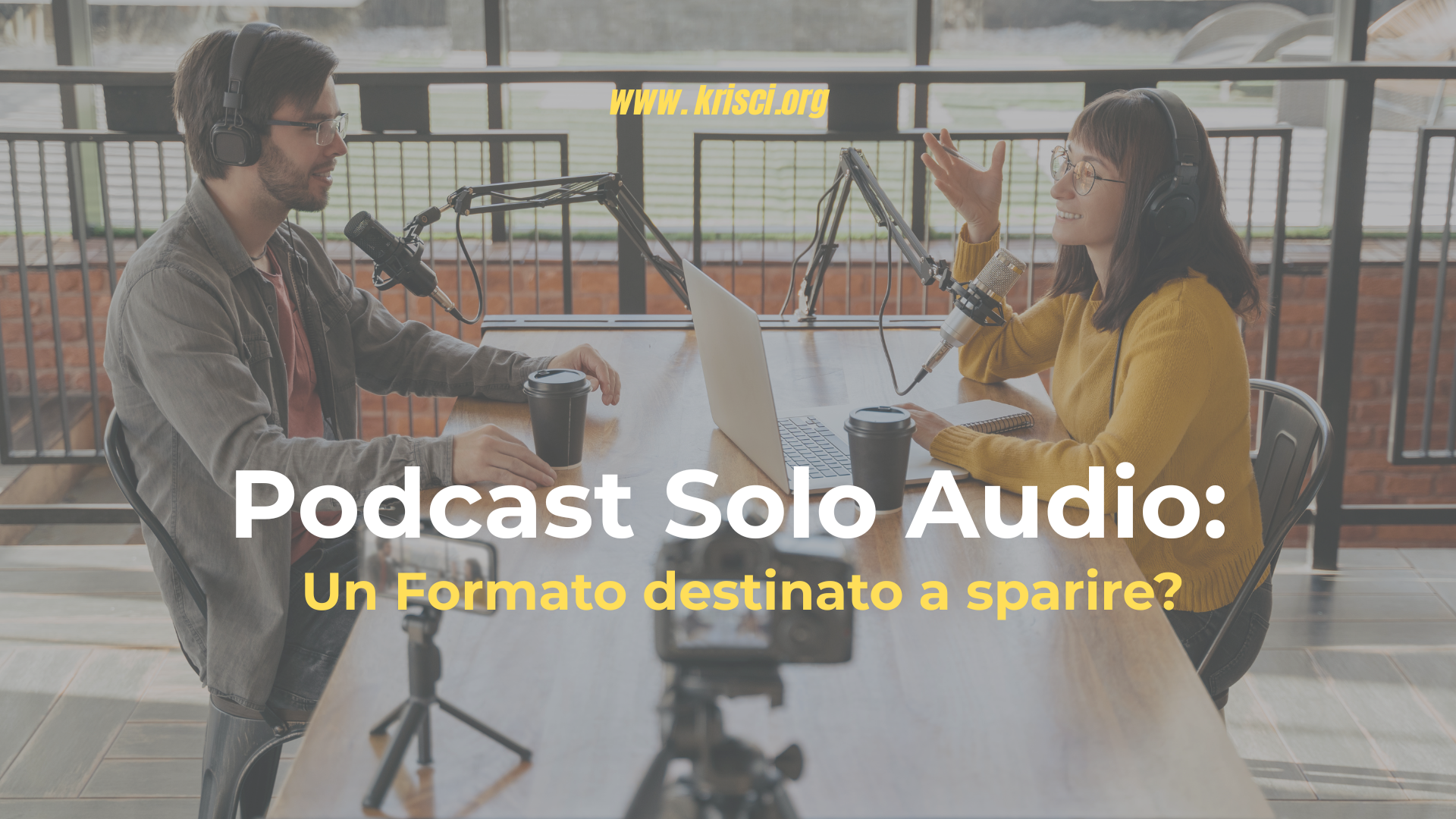Spotify announced the introduction of public “Play Count” for podcasts on its app, triggering an unexpectedly negative reaction from the podcaster community. A move that, on paper, seemed aimed at increasing transparency and valuing content, but in practice raised more questions than enthusiasm.
Â
In this article, we delve into what this new feature means, why it has caused discomfort among creators, and what the real implications of this choice are for those working in audio strategy, branded content, and podcast production.
Â
What Spotify Announced
Â
With a post on Threads, Spotify announced that it will start showing the number of “Plays” for each podcast episode, making this data public directly on the app. The stated intent is to “increase transparency and provide listeners with a metric to discover popular content.”
Â
But the initial feedback received by Spotify is far from positive, as reported by NBC News. Creators have expressed concern that this data could become a double-edged sword, penalizing small podcasters and favoring only large networks.
Â
Spotify has assured that it will listen to feedback and provide further details in the coming days, but in the meantime, the controversies have not been long in coming.
Â
How Spotify Counts “Plays”: The Model's Limitations
Â
According to the new guidelines published by Spotify:
Â
A "Play" is counted when a user starts playing an episode on the platform.
Â
It counts only once per session, even if the user pauses and resumes listening.
Â
Trailer or clip listens are not counted.
Â
This definition seems clear, but the reality is much more nuanced. According to data reported by Podnews Weekly Review, the same content on Spotify and Apple Podcasts generated drastically different numbers:
Â
185 unique users on both platforms in 60 days.
Â
715 “plays” on Spotify.
Â
2,800 “plays” on Apple Podcasts.
Â
A difference of almost four times in favor of Apple, despite the same audience. This is because Apple counts every tap of the “play” button, while Spotify uses a more restrictive method.
Â
Why Podcasters Are Concerned
Â
Risk of Demoralization for Small Creators
The publication of play numbers can make podcasts with low numbers seem “minor” or “unsuccessful,” creating a discouraging effect especially for independent or niche creators. This risks negatively influencing the behavior of listeners and sponsors, pushing only towards already popular content.
Â
Absence of Universal Measurement Standards
Platforms do not use shared criteria (such as those proposed by the IAB - Interactive Advertising Bureau), creating confusion and making comparisons between platforms unreliable. Spotify, Apple, and YouTube continue to measure differently, fueling distrust towards published data.
Â
Reputational Impact
Exposing public data can alter the perceived value of a podcast, regardless of content quality, favoring an industry increasingly driven by numbers and less by editorial substance.
Â
Implications for Brands and Agencies
For those working in audio strategy and producing podcasts for brands or communication projects, this move opens new scenarios to be carefully evaluated:
Â
Public data does not mean reliable data: those involved in consulting and production will need to educate clients not to be guided solely by the visible numbers on Spotify, but to consider more comprehensive metrics such as download analytics, completion rate, and real engagement.
Â
The strategy must include multiple platforms: Spotify is important, but it is not the only platform. The divergent data shows that a multiplatform approach remains essential to truly reach the audience.
Â
Communicating value beyond numbers: those working in podcasting will need to better communicate what quality listening means, beyond “plays,” valuing the listening experience, narrative impact, and engagement.
Â
Conclusions
Spotify's choice to make “Play Count” public opens up a much broader issue concerning transparency, quality, and sustainability of the entire podcast ecosystem.
Â
As professionals in audio strategy, it is our duty to help brands, creators, and listeners interpret data correctly, preventing podcasting from becoming a mere numbers game, instead of remaining a creative space of value and authentic relationship.
Â
If you want to learn more about how to build a tailored audio strategy that goes beyond numbers and truly reaches people, continue to follow us on krisci.org or contact us for personalized consulting.
Â
Source: podnews / www.nbcnews.comÂ




